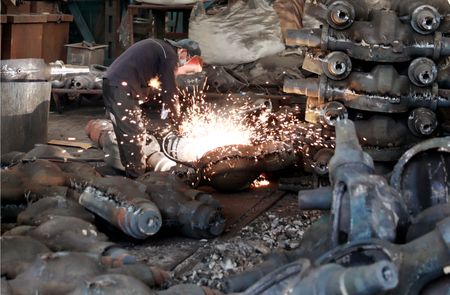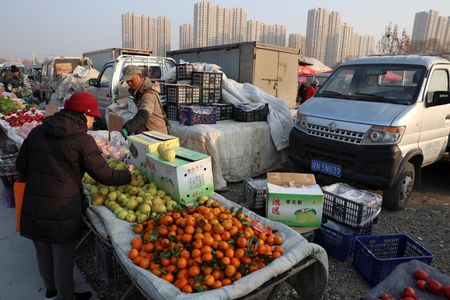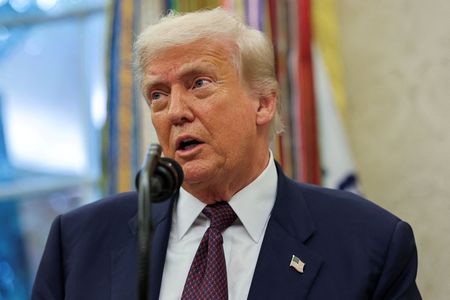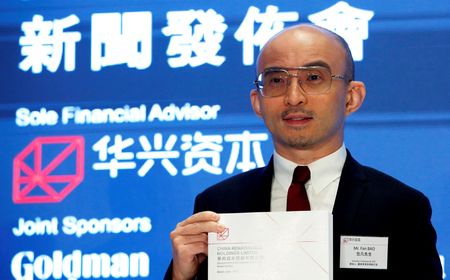BEIJING (Reuters) – China’s factory activity grew at a slower pace in January, while staffing levels fell at the quickest pace in nearly five years as trade uncertainties increased, a private-sector business survey showed on Monday.
The Caixin/S&P Global manufacturing PMI slipped to 50.1 in January from 50.5 the previous month, missing analysts’ forecasts in a Reuters poll of 50.5 and easing to a four-month low. But it just exceeded the 50-mark that separates growth from contraction.
Still, the reading was better than an official survey last week, which showed manufacturing activity unexpectedly contracted at the start of 2025, keeping alive calls for more stimulus in the world’s second-largest economy. The smaller Caixin survey is believed to focus more on export-oriented companies.
According to the Caixin survey, manufacturing production accelerated in January from December, while total new orders increased at the quickest pace since November. Factory owners reported improved demand and anecdotal evidence suggested that some clients had ramped up orders for stockpiling purposes.
In the face of U.S. President Donald Trump’s tariff threats, anecdotal evidence suggested exporters rushed to load cargoes at a major Chinese port before the eight-day Lunar New Year holiday and ahead of any new tariffs.
Trump on Saturday ordered 10% tariffs on goods from China and larger levies on Canadian and Mexican imports, risking a new trade war that economists say could slow global growth and reignite inflation.
The Caixin survey showed January new orders from abroad declined for a second straight month.
And factories’ average selling prices declined at fastest pace since July 2023, reflecting pressure to support sales and market share amid rising competition and global uncertainties.
Still manufacturers’ sentiment improved on signs of improving domestic demand and expectations of more government support measures for the economy.
Employment usually eases as factories tend to shut temporarily over the long Lunar New Year holiday. But January’s job shedding rate speeded up to the fastest since February 2020.
According to manufacturers, the fall in employment levels reflected the non-replacement of job leavers and redundancies due to cost concerns.
Nonethless, the reduction in staffing levels and rising new orders led to a fourth monthly accumulation of backlogged work in the manufacturing sector.
“Rising uncertainty in international policies could worsen China’s export environment, posing significant challenges for the economy,” said Wang Zhe, economist at Caixin Insight Group.
Economic policies hence “must be well-prepared and adjusted promptly” to adapt to evolving circumstances, he added.
(Reporting by Ellen Zhang and Ryan Woo; Editing by Kim Coghill)











